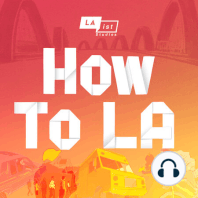16 min listen
The History Of California's No Spanish Rule
FromHow To LA
ratings:
Length:
18 minutes
Released:
Oct 16, 2023
Format:
Podcast episode
Description
#166: Back in the late 1800s, California leaders got together to rewrite the state's constitution. It was proposed that all government documents should only be written in English and that official business only be spoken in English. That proposal was soon adopted, effectively banning Spanish for official use, despite promises made after the end of Mexican-American war to create space for the language. It's a decision that continued to affect California classrooms decades later. But one higher ed system in the state is taking steps to reverse it. Host Brian De Los Santos talks to LAist's Adolfo Guzman-Lopez who recently wrote about this is in a two-part series.Guest: Adolfo Guzman-Lopez, Higher Education Correspondent for LAist
You can find his story on LAist -- part 1 is here: https://laist.com/news/education/california-constitutional-convention-english-only-spanish-laccd
And here's part 2: https://laist.com/news/education/laccd-community-colleges-immigrant-experience-in-language-classes-spanish
You can find his story on LAist -- part 1 is here: https://laist.com/news/education/california-constitutional-convention-english-only-spanish-laccd
And here's part 2: https://laist.com/news/education/laccd-community-colleges-immigrant-experience-in-language-classes-spanish
Released:
Oct 16, 2023
Format:
Podcast episode
Titles in the series (100)
City Controller Kenneth Mejia Wants To Be Transparent by How To LA
